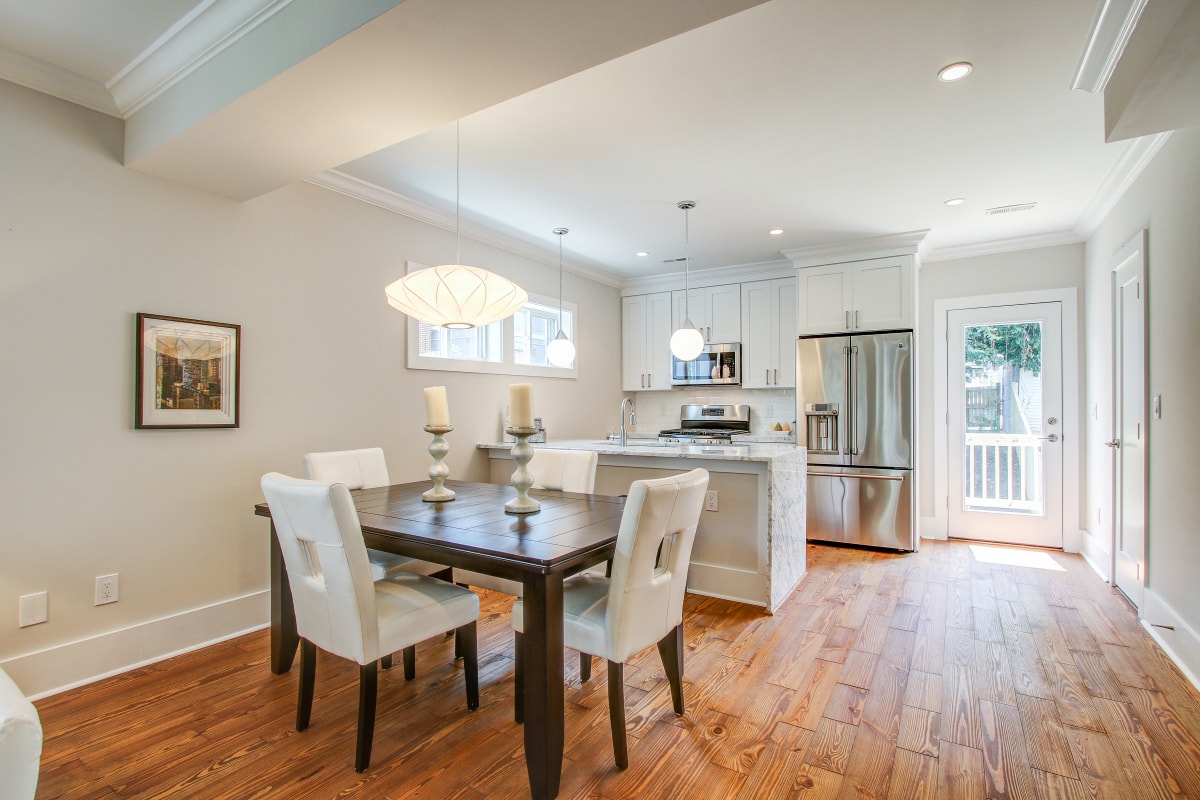Will Hardwood Floors Fade From Natural Sunlight
- Published By: District Floor Depot
5/5

Share on Facebook
Share on Pinterest
Share on Linkedin
Share on Twitter
Share via Email
Hardwood floors add warmth and beauty to any home, but they require maintenance and care to keep them looking their best. While hardwood tend to change color to darker tone in time after installation, the sunlight that streams through your windows can be one of the biggest threats to your flooring’s longevity. Prolonged exposure to the sun’s rays can cause fading, creating a dull look that detracts from the appearance of your home’s interior. There are a few steps you can take to minimize these effects.
How Does Natural Light Fade Hardwood Floors?
Wood is a photosensitive material, meaning that it reacts to light. The sun’s ultraviolet rays, combined with visible light and infrared light that creates solar heat, react with the wood and the finish used during the installation process. This reaction causes the flooring to fade over time. Some species of wood fade more quickly than others, so that’s something to keep in mind when you’re choosing flooring.How to Prevent Hardwood Floors From Fading
While fading can pose a long-term problem for hardwood floor owners, there are several steps you can take to stop the sunlight damage in your home:- Rearrange the furniture: Move the furniture and other items in the room periodically to prevent sunlight from striking the same floor areas for prolonged periods. This process will equalize the exposure and help to maintain color consistency. Moving things around also helps to freshen up the room’s appearance.
- Place rugs: Covering expansive areas of floor space with rugs adds a decorative touch to the room and keeps the sunlight away from your hardwood flooring. One tip is to roll the carpet when going on vacation to get both section blend.
- Apply window coverings: Blinds, shades, curtains, and drapes help keep sunlight from penetrating through your windows and reaching the flooring during the daytime. Horizontal louvers or mini blinds with slats enable you to direct the sunlight towards the walls or ceiling instead of the floor.
- Install window tintings: Coating windows with specialty films or tints can cut down on the ultraviolet and infrared rays that pass through them. Depending on the product, it is possible to control the percentage of visible light that enters your home. The best time to use tinting is when installing new windows, although you can also apply it to existing windows.
- Use landscaping: Planting trees and shrubs near windows can block some or all of the sunlight. As a bonus, landscaping can enhance the beauty of your home’s exterior and boost its curb appeal.
- Install awnings: Mounting awnings over your windows can keep the sun’s damaging ways from reaching them. Retractable models are available that allow you to control exposure to the sun throughout the day and create shade during hotter periods.
